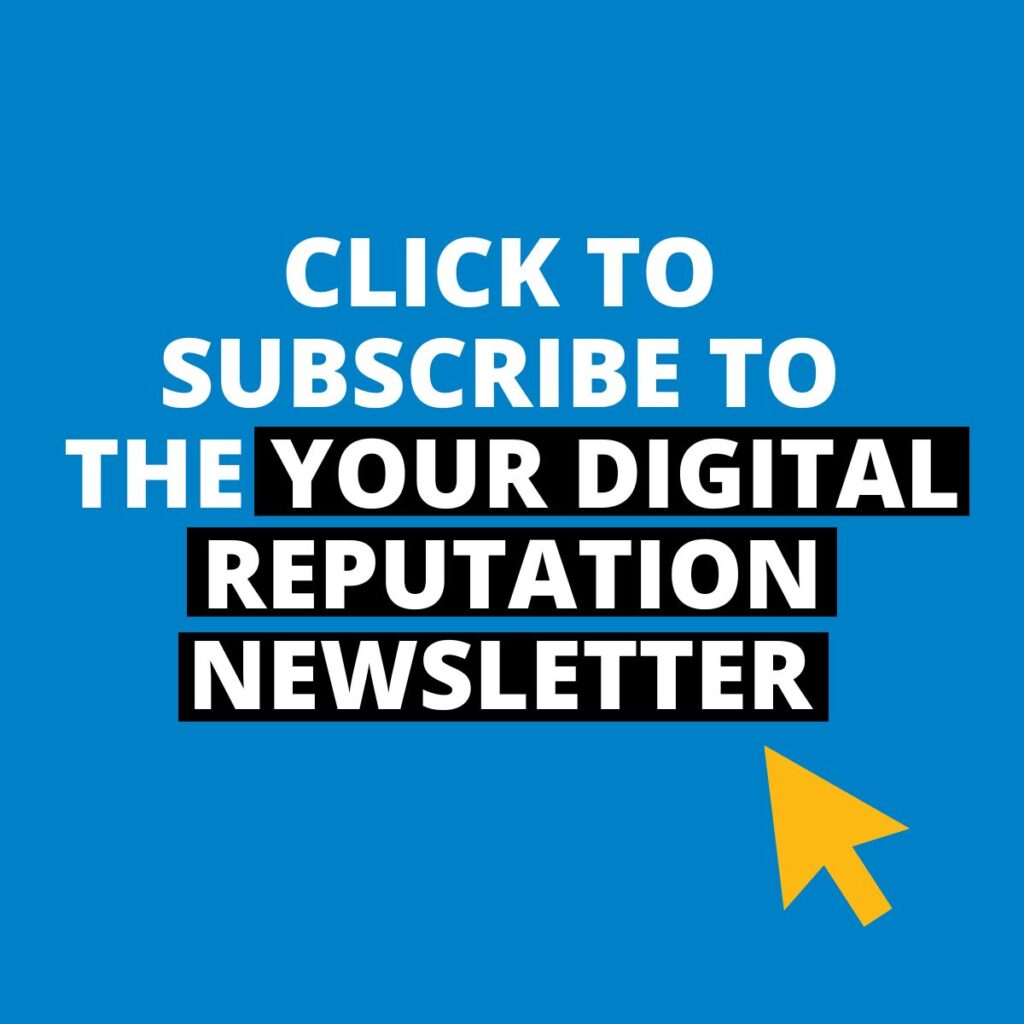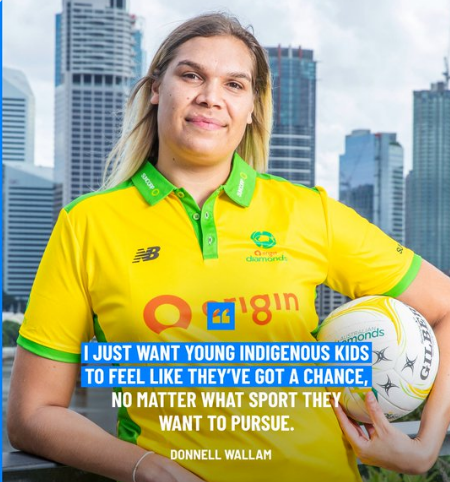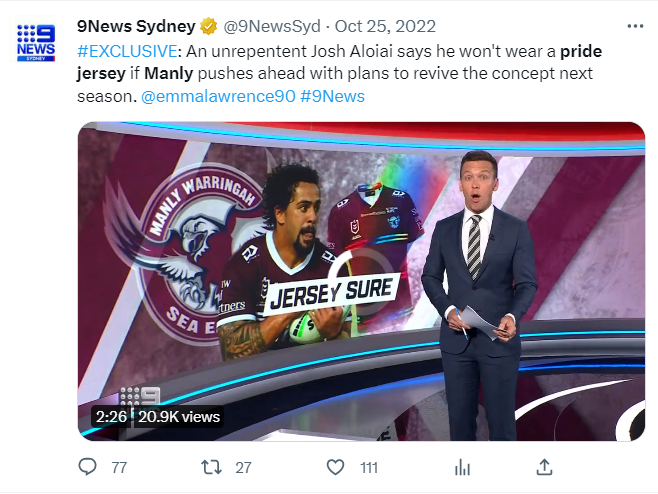Can you balance personal values and professional interests online? It’s a really tough question. Particularly for individuals who, as we know on this podcast, are expected to speak up and on top of that, pretty much everything they’ve ever said or done can then be found on Google. So in light of this, how can leaders uphold their values, uphold their integrity, and uphold their reputation when it comes to balancing personal and professional interests online?
To help us wade through this complex issue, I’m thrilled to be joined by Emma Pocock, CEO of FrontRunners; an organisation that supports athletes in engaging with the climate and environmental challenges facing all of us. Emma has a ton of experience working alongside her partner, former Wallaby captain, and now Senator for the ACT David Pocock on various projects and building a public profile for good through sport, particularly around conservation, climate change and marriage equality. Here’s a snapshot of our conversation.

Roger Christie: When it comes to online choices and actions, I honestly think you’d be hard pressed to find a more visible and more scrutinised cohort than elite athletes. So, how tough is this whole digital reputation challenge for athletes today?
Emma Pocock: It’s so fascinating. With the rise of social media, we’re seeing such a change in the sporting landscape. A couple of generations ago, and even at the start of my partner, David Pocock’s career, social media didn’t really exist. So all of an athlete’s access to their fans and to the wider public was mediated through their employers, the clubs, the governing bodies and the media outlets that they had partnerships with.
Now, athletes can achieve that direct access to their fans through their own social media platforms. Particularly as Gen Z start to filter through into the professional athletes space, we’re starting to see a lot of interest in exercising the opportunities that come with that. But obviously that comes with a whole stack of risk as well – risk that is being felt by the athletes, but also by their employers. Employers who now find themselves managing a cohort of individuals who have their own digital platforms and their own way to access their fans.
Roger Christie: That’s a really interesting point around that idea of direct access and risk. There are differences between athletes and leaders, executives and directors, or whoever it might be at the helm of organisations today. But what I find interesting is there is a similar dynamic and challenge playing out across the different sectors. In the business landscape, every leader is being drawn into conversations by audiences and stakeholders who expect them to speak up. Has that always been the same challenge for athletes and the digital environment has only accelerated that?
Emma Pocock: It’s an interesting question. I guess this is where I would tease out a distinction between the corporate leaders you work with and athletes – athletes aren’t leading the organisations that they work for. A better comparison would be, if I’m the CEO of an organisation, it would be like some of my staff wanting to speak out about something publicly and having a massive platform to do that. Athletes are the ones that have the followers, but they often aren’t running the businesses and often don’t have that direct connection to the commercial realities of the business. And so that’s where I think there can be some real complexity for athletes and their employers and the companies that are running these sports teams.
Now we’re seeing that completely broken down. And in fact, our advice to clients when we talk to them is your people are an asset and they should be given that opportunity to speak up. They should be trusted and empowered in the same way that ideally they’re trusted and empowered when they signed an employment contract.
And so, I’m hopeful that there are some savvy organisations out there who are looking at dynamics and models like the sporting world and saying, these athletes are no different to our people today. Our people too can be voices, they can be advocates, and can go out there and engage the community. So as an organisation it comes down to asking: how can we help them to make smart choices online? In your opinion, is that a fair representation of where corporations are heading?
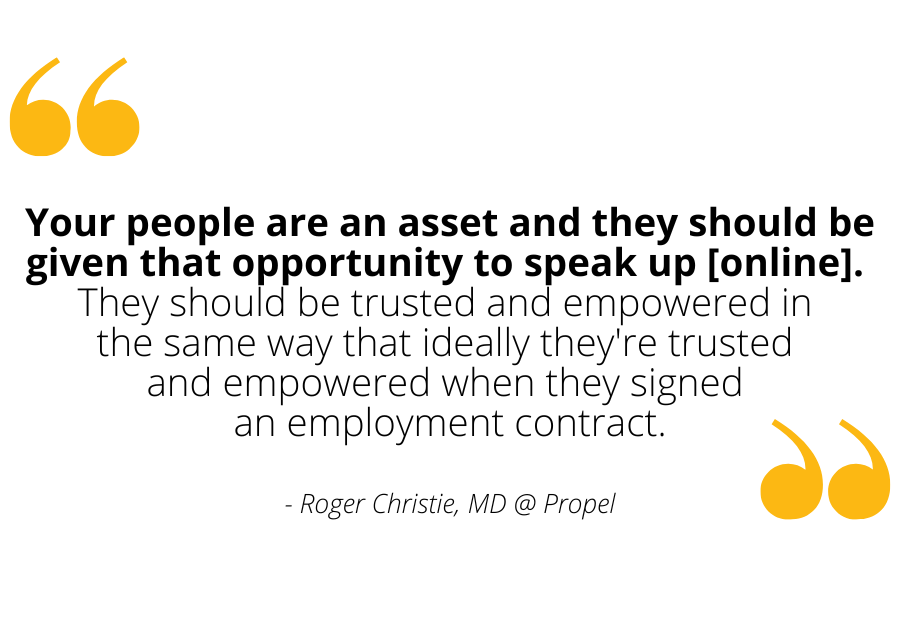
Emma Pocock: It’s complex, isn’t it? Because for lots of businesses, the values that their employees, and in my case athletes, want to talk about aren’t expressly to do with the day to day product that that company is selling. So how do you balance that and what do you do when you have an employee whose views don’t accord with those of the organisation? How do you create space for people to share their views, express themselves? What are the limitations of that? Where should those boundaries be?
In the case of sport, it’s this kind of very reciprocal relationship that’s not often talked about where the athletes are, as you rightly identified, the asset that the sport is built upon, but they are also employees. So it’s a complicated relationship there. And if you want to create space for athletes to be able to talk about things in accordance with the values of the organisation, what happens when they don’t? And how do you bridge that tension and do that really effectively? And in a way that takes into account the outcomes that the organisation wants while also balancing the human rights of the employee.
Roger Christie: And it’s a conversation that’s playing out while you’ve got an audience that is hungry for content, for comment, for views and opinions of the people they often idolise. And that’s what’s really interesting about this – whether we like it or not, answers are going to be needed. A dialogue is going be needed between athletes or employees and institutions that they’re representing.
I’d encourage organisations to look at the way they’re doing things. Is there an open dialogue between their employees and those further up the the tree in terms of senior leadership positions? Is there an open dialogue around how we represent ourselves as a people, as a body in the community, whether that’s online or offline? And how do we have open discussions in the appropriate forum, but open discussions around values and culture and the things that we stand for so that there isn’t an explosion of risk at some point because someone speaks out of school.
Digital has made this more urgent and more complex and I think people should take learnings from the sporting world and apply it to the corporate world. Sure, we’re not all celebrities working within organisations. We don’t attract that sort of attention. But at the same time, there is a heightened desire from organisations to harness their employees, to be ambassadors for their organisation. What comes along with that is the risk and the need to ensure education and to ensure proper support structures are in place so that smart decisions are made.
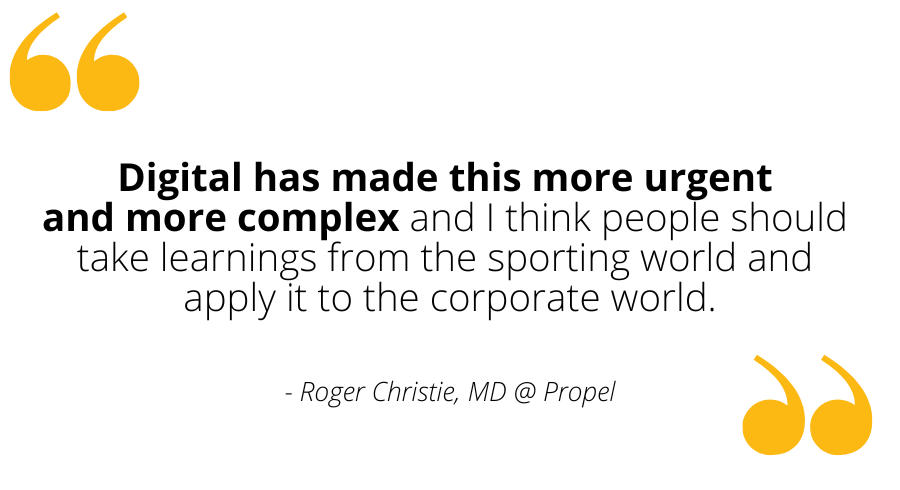
Roger Christie: We’ve seen some very public examples of this playing out. Everyone will probably be aware of the tension between Hancock Prospecting and Netball Australia and the challenges that unfolded there. We saw Sebastian Vettel getting trolled online about his attitudes and beliefs around climate change before he ultimately cited that as a key reason for retiring from F1 last year. And closer to home, the Australian men’s cricket captain, Pat Cummins quit as an ambassador for a major sponsor linked to that same climate concern. When drawn into a conversation because audiences are expecting you to speak up, what should people do in particularly in high profile positions? What advice do you give them on how to respond?
Emma Pocock: This is one of the of thorniest questions I think that exists. It’s one thing as an individual to be speaking up about something that you care about and your employer not necessarily liking that. It’s another thing being expected to represent values that don’t accord with your own.
And we’ve seen other examples of that. Players from the Manly Sea Eagles who won’t wear the Pride jersey. We’ve seen that in the AFLW as well. It is really tricky. I think that there is a real responsibility that falls on organisations who are taking positions on issues that go beyond the particular circumstances of their organisation to really help bring their employees along with them.
If you want to take a stand as an organisation on an issue, then you have a responsibility to ensure that your staff have the opportunity to actually get across that and to understand why it matters to the community, but also to your business. And to do that kind of deep work of thinking through how to create spaces for people to ask questions, without recourse – that’s a really powerful thing that you can do as an organisation.
Tolutau Koula was among the Manly Sea Eagles players to boycott an NRL match earlier this season instead of wearing a rainbow-decorated jersey.
If as an organisation you want to align yourself with certain values, you actually have a responsibility to do that work internally, before or at the same time as you are doing the work publicly. Recently, Football Australia made clear their plans around their first ever pride round, but that they’re actually taking a really beautiful approach where clubs are able to start wherever they’re at. That might be all guns blazing, wearing the jersey, doing lots of promotional stuff around it. Or it might be running an internal education session for their playing group and their staff business side. And I think that’s how we make progress. It’s not by saying everyone has to get to this ultimate destination, but by saying where are we actually at and how do we build on that?
Roger Christie: I think it’s a real challenge, but I think it’s one that we have to take seriously. And if you want be a values-based organisation, then you have to do the work. And I think it also starts by ensuring that you don’t treat your people like resources to be used and expended, but instead appreciate that people are people. Understanding them and creating a dialogue with them to work towards a place that is mutually beneficial.
One of the traps that organisations fall into in this social media age is viewing their people as a mouthpiece – a resource that I can use to get my message across as opposed to working in collaborative partnership. If you can shift that mindset, start a dialogue and put education at the core of that on both sides, people and corporations. Then you’re only going to get a better outcome.
Feel free to drop Roger Christie a note with any thoughts from this conversation. If you want more on all things digital reputation, be sure to subscribe below to the Your Digital Reputation newsletter packed full of advice, trends and the best leadership examples just for you.



